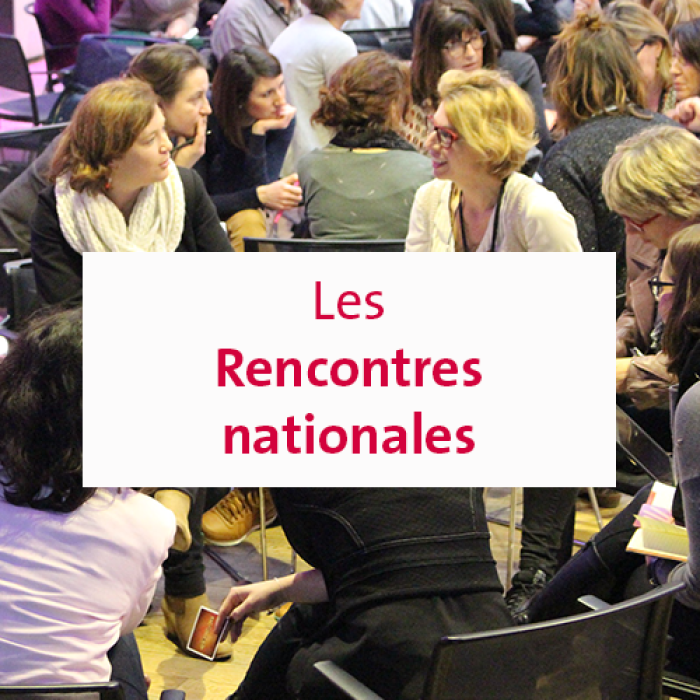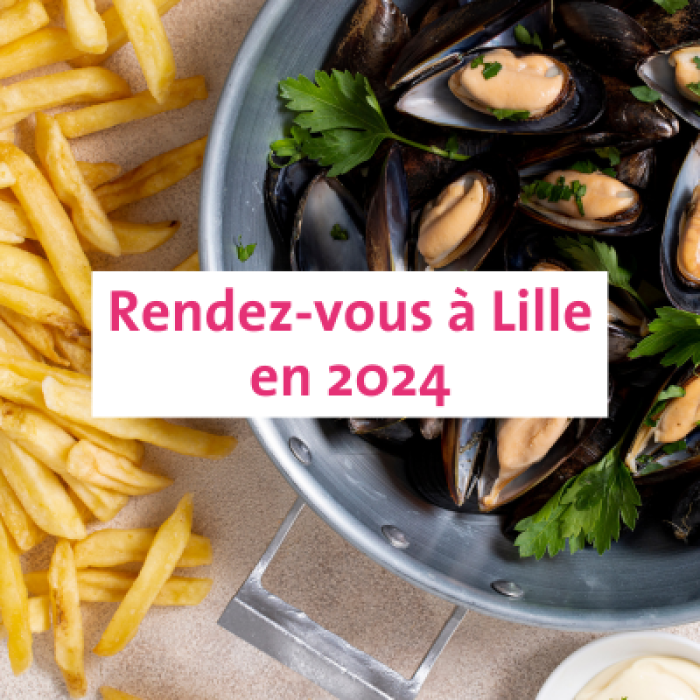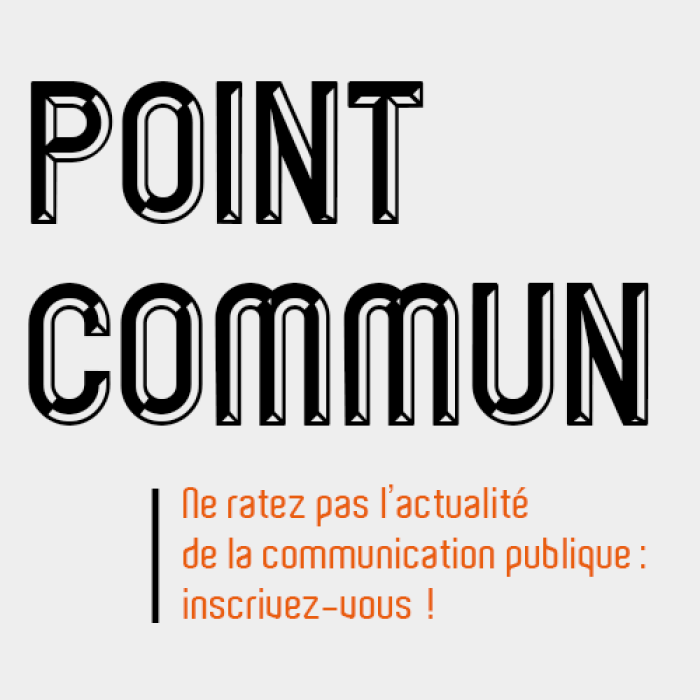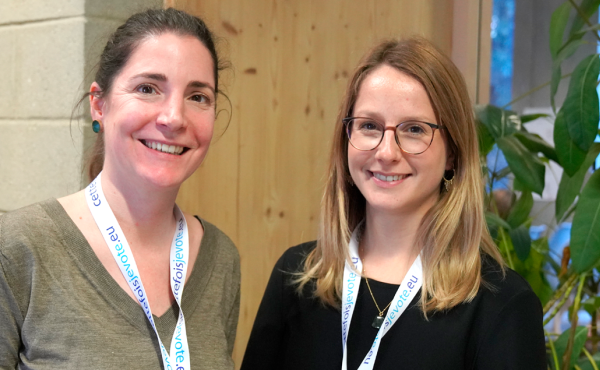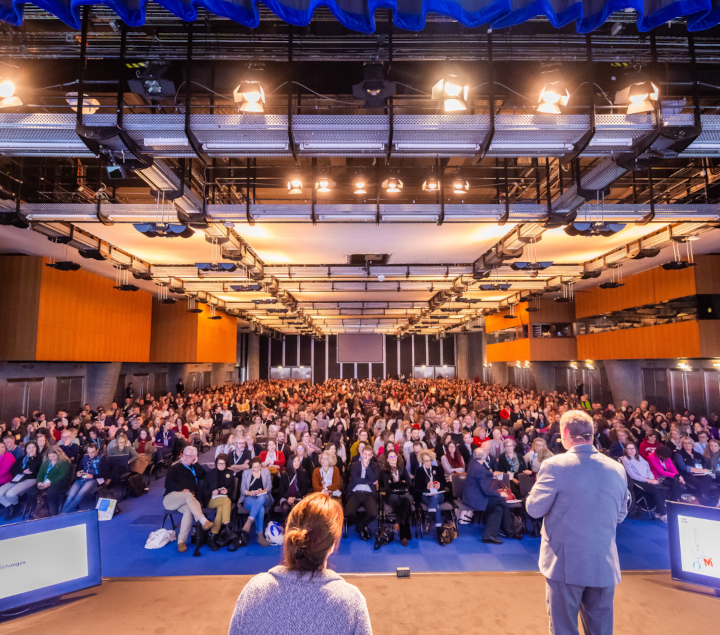
The Toulouse Forum: facing challenges together
The word “gathering” doesn’t do it justice... the Toulouse Forum on 5, 6 and 7 December 2023 was rather a convergence. A convergence of shared observations, points of interest, personalities, a large number of colleagues and the word Com'vivencia, created especially for the occasion.



Toulouse, the “pink town” and host of the 35th Cap'Com Forum, unveiled its heritage to the communicators taking part in one of the 10 professional visits.
From the very first exchanges in the Occitan winter, it was clear that this year's event would be different. The 35th Forum kicked off with ten professional visits. Surprising places, managed in a responsible and sustainable way, in an area rich in experience and often exemplary in its approaches, shared their expertise in public relations with over 500 participants, a good half of them from Toulouse itself. They converged on foot on the Place du Capitole and the aptly named Salle des Illustres, where the city's communicators were waiting for them.
Jean-Luc Moudenc, Mayor and President of the metropolitan area, gave them a rousing address, not only because he used to be a communicator, but also because he attaches great importance to communication, as he demonstrated by outlining the major challenges facing our professions: how to stand out in the information chaos and how to manage public procurement procedures with care, with a view to developing more virtuous relations with the communication ecosystem. He said, “When you've been elected, you think that if you've worked on a project for months and when you've talked about it once, that's it. But we have to keep repeating and re-explaining what we're doing.”

Dominique Wolton directly addresses the audience
The opening plenary was a lively affair, full of complicity, as well as vehemence, irritation and emotion. After an urban choreography created for Cap'Com by the James Carlès company - which immediately set the cursor to 'intense' and focused on the coexistence and confrontation of people, cultures and generations - a tandem, microphone in hand, quickly engaged in a dialogue with the vast room of more than 1,000 public communicators, using a tool that would remain with participants throughout the Forum, namely the Com'vivencia app. Julie Hétroy, a member of the Steering Committee and communications director of Suresnes, invited everyone to use it live to put questions to Dominique Wolton and to answer three questions that had already been asked to all professions and to the French people.


Yves Charmont, General Delegate of the Cap'Com network, and Julie Hétroy, member of the Steering Committee and communications director for Suresnes, opened the 35th Public Communication Forum in Toulouse with a discussion with Dominique Wolton, researcher at the CNRS and editor of Hermès magazine.
A highly interactive session then began, with an overview of the survey on the mood of public communicators (Commonality will return to this in early January 2024), showing both confidence in their institutions and their professions, but also a pessimistic view of the future and a widespread lassitude. Another study, specially conducted among the French for the occasion, was also presented, especially as it had been quoted in the announcement of the Forum on the France Inter radio station. In the survey, 52% of French people said that their town's municipality helped them to understand public policy. Each result was explained and then commented on in a lively, on-the-spot manner, providing an interesting back-and-forth between public opinion, that of public communicators and Forum participants.
In his speech, Cap'Com's General Delegate drew a link between the work of the academic invited to take part in the conference and the Toulouse area, which has been accustomed to negotiation for centuries.
To hear each other is to communicate, without necessarily sharing the same ideas, but at least agreeing on certain points.

He dwelt for a moment on the term "s’entendre", which, in French, means both to hear the sound of the voice and to agree, noting in passing that "to hear each other is to communicate, without necessarily sharing the same ideas, but at least agreeing on certain points". Dominique Wolton added, on this subject: “The problem isn't to say something to someone, it's that someone actually listens. ‘I hear you but I ‘m not listening’ is a universal phrase.”
Caught between acommunication (emptiness and war) and incommunication (obstinacy and systematic refusal), public communication professionals have their work cut out for them these days. And the Cap'Com steering committee, responsible for guiding the content of this year's event, has aptly chosen the theme of this Forum, based on the notion of "living together" (convivencia in Occitan). This choice has been endorsed by several months of sharp deterioration in dialogue in our country.
This is where the words of Dominique Wolton, researcher at the CNRS and editor of the magazine Hermès, hit the nail on the head! “You're involved in communication because taking the receiver into account is precisely what defines communication. Information is the message, while communication is the relationship”, he declared, before continuing, “Three quarters of the time, what we call communication is simply expression. But if everyone is expressing themselves, who's listening? And the tragedy, the greatness and the difficulty of communication is precisely to take account of otherness. So the rupture between information and communication is the growing weight of the receiver, the inescapable reality of otherness.” And the message got across. Dominique Wolton then addressed the audience directly, “You spend all your time managing incommunication, with the difficulty of differentiating yourself from political communication.” Striking a chord, he continued, “You are the business of incommunication. And that's not at all pejorative, on the contrary it's very complimentary. So there's a complete reversal, in that we need to make political communication more modest and be more sensitive to public communication. If I sum up the situation: 1. search for intercompetence, 2. discovery of incommunication, 3. negotiation to manage this lack of communication.”
The speaker received a standing ovation, which immediately put this year's event on the map, and he was quoted time and again over the following two days.
A wide range of subjects and the same assiduity
Com'vivencia was an intense two days at Toulouse's Pierre Baudis Centre. The Forum's now-classic formats, such as the "Grands angles" and the "hop conferences" (six projects in a row), were often packed to capacity. As the Forum was so well attended, the workshops, discussion mats and even the new fab-lab format all found their audience. There are too many for us to mention here. We spoke about combating disinformation, agent ambassadors, the French language, sobriety... Attendees will be able to testify throughout the year to the breadth of the discussions. But to illustrate this breadth, let's take the example of the two sessions devoted to artificial intelligence.



AI to chew on and take away
Artificial intelligence is a highly topical issue that is challenging the profession and disrupting its practices, and was a constant source of debate throughout the Forum. And with good reason, it was approached from two angles, admittedly different but essential and complementary. Yann Ferguson, a sociologist at Inria, Anne-Claire Dubreuil, Sicoval's director of digital processing projects, and Olivier Auradou, director of Etikia, began by discussing the consequences of artificial intelligence on society and on the role of public communicators.
In a high-quality debate, they offered participants an opportunity to gain some perspective on the subject. By sharing their rigorous visions, they called on communicators to take ethics and transparency into account in their uses of artificial intelligence. And they gave clear advice on the stance to adopt as a local authority or public body. This conceptualisation is necessary in order to re-examine the profession in the light of the artificial intelligence revolution. For Yann Ferguson, a specialist in artificial intelligence and its impact on society: “There is a proposal for EU regulation, called the IA Act. From this point of view, it is important for communicators of general interest to work with sovereign AI today. This is very important because if AI becomes the key technology of the digital world, it will be very serious if we don't have our own technology. If we are not sovereign, we will be giving our citizens' data to the whole world.”
Concrete illustrations and practical solutions to take away: AI is on our doorstep and it's interesting to see how we can apply it.
A participant

Following on from this analysis and framing of the limits and precautions to be taken with artificial intelligence, a workshop was held with Éric Legale - director of Issy Média -, Annabelle Bendel - from the Pan agency - and Pierre Bergmiller - from the Strasbourg Eurometropole - to look at the practical uses of AI. This was an opportunity to put into practice how to make the most of AI in public communications. Community management, image and video creation and copywriting were just some of the concrete examples shared, while envisaging the use of AI in the day-to-day work of communicators.
Support for public communicators


It's hard to say why this year's event was such a success. The atmosphere reflected a joyful desire to come together. The attendance (with occasional overcrowding) can perhaps be put down to the need to get together as a group, as if it were a remedy for lassitude. As if the weight of the issues made it necessary to get together. In any case, the speakers at the closing plenary session took it in turns to offer their expert and enlightening views, but also to support the profession. Like Nathalie Mader, an elected representative of the Occitanie region and university lecturer from Toulouse, who questioned the place of political communication, noting the “divide between political action, which is valued, and political words, which seem to be demonetised and often equated with promises”. She went on to emphasise, from her point of view as an elected representative, the importance "during the term of office, of implementing our public policies and taking political action with strong public communication".
Public communication not only enhances public action, it also raises awareness.
Nathalie Mader, elected representative of the Occitanie region and university lecturer from Toulouse


Reflecting on the Covid period, Nathalie Mader explained that they “had to invent, innovate, find new approaches and use new information flows in order to counter territorial and social divides and to combat forced confinement, and that's not a figure of speech. So we had to take action, an exercise that required a great deal of expertise, and that's why the communications professionals who worked with us, supported by the elected representatives, helped to maintain public service” (see the example “In my area”). She concluded by asserting that while “public communication enables us to promote public action, it also enables us to raise awareness.”
These powerful words were applauded by the audience as Mercedes Erra, president of La Filière Communication and founder of the BETC agency, took to the stage. She too expressed her own point of view, and that of the communications and advertising ecosystem, of the small agencies that make up the vast majority, and of the difficulties of living in a competitive environment that is not always sustainable. “There's something serious going on with competitions, because they are ruining our agencies. This doesn't just apply to public contracts, because there are also competitions from our private customers. In practical terms, we're confusing choosing a partner with choosing a campaign.” Having launched a mediation process at the Ministry of the Economy involving the whole sector (including Cap'Com), she outlined the history of this process and the guidelines that emerged from it: “We could implement these rules together, because in fact they protect both you and us.”

You have an incredible role to play, and we need to bring some positive energy back into this story. And to believe in ourselves, to believe in people.
Mercedes Erra, president of La Filière Communication and founder of the BETC agency
She finished by saying, “You have an incredible role to play, and we need to bring some positive energy back into this story. And to believe in ourselves, to believe in people.” A powerful speech that was warmly received by an even larger-than-usual audience, gathered to watch the Grand Prix Cap’Com 2023 ceremony. The ceremony was opened with elegance and serenity by a Greek specialist in the fight against disinformation, author of a book on the subject and European civil servant, namely the 2023 jury president, Klimentini Diakomanoli. Her words were a fitting illustration of this year's event, which is all about people, about upholding a profession and valuing those who work in it. She went on to talk about her role on the Grand Jury, noting that there was “a similarity between the challenges addressed by these campaigns and those dealt with at European level in Brussels. The concerns are the same. I didn't expect France to have communicators like you; you are the driving force of Cap'Com. I understand better now that I'm here. You are quality communicators and I've seen that reflected in the depth of your debates (because I've been with you for the last two days). I was impressed to see how these subjects were dealt with, including the subject of artificial intelligence. We have exactly the same concerns at European level: to be able to use artificial intelligence in a virtuous way for the benefit of citizens, protecting our rights as citizens too, our democratic rights, but also taking account of ethical issues. And ethos just happens to be a Greek word.”

Everyone left feeling energised... until next year, when we'll be back to do it all again! See you in Lille on 10, 11 and 12 December 2024 for the 36th Public Communication Forum!

